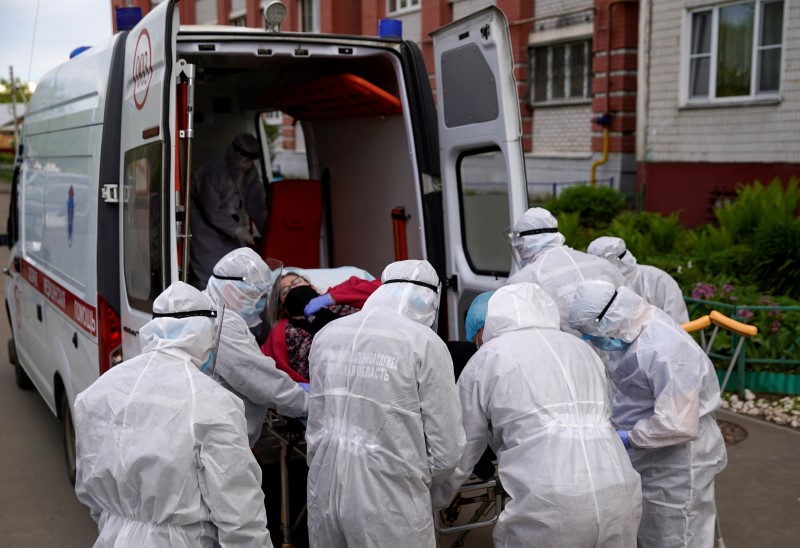By Andrew Osborn
MOSCOW (Reuters) - Russia will start giving its first drug approved to treat COVID-19 to patients next week, its state financial backer told Reuters, a move it hopes will ease strains on the health system and speed a return to normal economic life.
Russian hospitals can begin giving the antiviral drug, which is registered under the name Avifavir, to patients from June 11, the head of Russia's RDIF sovereign wealth fund told Reuters in an interview. He said the company behind the drug would manufacture enough to treat around 60,000 people a month.
There is currently no vaccine for COVID-19, the disease caused by the new coronavirus, and human trials of several existing antiviral drugs have yet to show efficacy.
A new antiviral drug from Gilead (O:GILD) called remdesivir has shown some promise in small efficacy trials against COVID-19 and is being given to patients by some countries under compassionate or emergency use rules.
Avifavir, known generically as favipiravir, was first developed in the late 1990s by a Japanese company later bought by Fujifilm as it moved into healthcare.
RDIF head Kirill Dmitriev said Russian scientists had modified the drug to enhance it, and said Moscow would be ready to share the details of those modifications within two weeks.
Japan has been trialling the same drug, known there as Avigan. It has won plaudits from Prime Minister Shinzo Abe and $128 million in government funding, but has yet to be approved for use.
Avifavir appeared on a Russian government list of approved drugs on Saturday.
ACCELERATED PROCESS
Dmitriev said clinical trials of the drug had been conducted involving 330 people, and had shown that it successfully treated the virus in most cases within four days.
The trials were due to be concluded in around a week, he said, but the health ministry had given its approval for the drug's use under a special accelerated process and manufacturing had begun in March.
Clinical trials to test efficacy drugs usually take many months, even when expedited, and involve large numbers of patients randomly assigned who receive either the drug being trialled or a control or placebo.
Success in small small-scale, early-stage trials is no guarantee of success in later, more comprehensive trials.
A study published this month, for example, tied the anti-malarial drug hydroxychloroquine, which U.S. President Donald Trump says he has been taking and has urged others to use, to an increased risk of death in hospitalised COVID-19 patients.
Dmitriev said Russia was able to cut testing timescales because the Japanese generic drug which Avifavir is based on was first registered in 2014 and had undergone significant testing before Russian specialists modified it.
"We believe this is a game changer. It will reduce strain on the healthcare system, we'll have fewer people getting into a critical condition," said Dmitriev. "We believe that the drug is key to resuming full economic activity in Russia."
With 414,878 cases, Russia has the third highest number of infections in the world after Brazil and the United States, but has a relatively low official death toll of 4,855 - something that has been the focus of debate.
RDIF, which has a 50% share in the drug's manufacturer ChemRar, funded the trials and other work with its partners, to the tune of around 300 million roubles ($4.3 million), said Dmitriev, who explained that the costs to Russia were much lower because of previous development work conducted in Japan.
